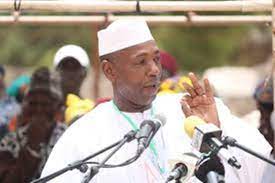By: Kemo Kanyi
The Chairman of Brikama Area Council, Yankuba Darboe, has accused the central government of impeding the functions of the local government (LG) by failing to provide subventions as required by the law.
Chairman Darboe was speaking at Gambia College Student Teachers’ Association (STA) week held over the weekend in Brikama Campus.
Deliberating on the topic, “the role of local government on teachers” he says councils can help schools in a lot of ways provided they are delegated by the ministry responsible. He states that schools are mainly reserved to central government, and teachers and everything else about schools are also reserved to central government.
Darboe says if the central government has challenges in managing certain schools, it can indeed delegate those functions to local government. But he adds that the central government does not want to delegate such functions to councils because it does not want to provide subventions.
“This is where the central government does not like to send us or to delegate those functions to us because they don’t want to give us the money. So they would rather keep the money, even if they’re failing in the functions that we can do much better,” BAC chair reiterated.
Chairman Darboe describes that as one of the caveats impeding the functions of councils.
He goes on to point out that the councils can offer support to teachers in other ways under the Local Government Act, which does not require ministerial approval or delegation.
“We can provide support to teachers through administration, development, and welfare. So, welfare components of this application of revenue, it’s where councils can be able to capture the support needed by teachers,” he noted.
He said that at the moment, the BAC’s welfare was limited to two components: health and education.
“This year, 6% of our budget has been dedicated to welfare support, representing D23 millions of our revenue. D8 millions of that is allocated for education,” he revealed.
Mr. Darboe explains that the amount is apportioned to scholarships, supports to schools in terms of maintenance of classrooms, libraries, and a whole lot of challenges schools are facing.





